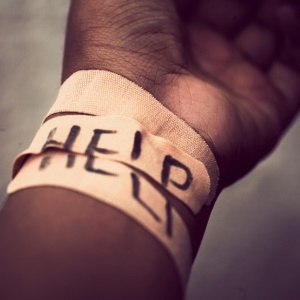
The stigma surrounding mental illness and suicide prevention is what discourages people from discussing these topics openly, often discouraging people from seeking the help they need.
While it was a normal part of life for people to go through tough times – deaths, unemployment, abusive relationships or loneliness – these down times could lead to them attempting suicide if they felt unable to find a way forward.
People need to seek help
These were the points made earlier this month when the John Toalo Gaetswer Civil Society Forum partnered with the Uniting Reformed Church to mark the 15th World Suicide Prevention Day under the theme "The World Needs You Here".
The day is a commemoration to those who died prematurely through suicide – with the World Health Organisation estimating that 800 000 people commit suicide each year, or one person every second.
Mental health co-ordinator Esi Molete from the Department of health in the district said it was important for people in trouble to seek help to try and address their mental state.
“It is important also to know the warning signs. Some people start talking about suicide often, while others work on a suicide plan and start making preparations for what should happen if they die,” she said.
Dikeledi Senatle, a nurse from Denosa (Democratic Nursing Organisation of South Africa) and a member of hosting church, Uniting Reformed Church, said the stigmatising of mental illness was harmful.
Emotional behaviour
“The church has a role to play. Pastors, clergymen and reverends are there in the church to listen to the congregations' social ills,” said Molete, explaining how all kinds of people could be of help and that people were most likely to commit suicide when they were in a dark place and felt they had no support and that nobody cared.
She said teenagers between the ages of 13 and 18 generally faced school stress because of exams and heavy pressure to pass from parents and society in general.
She said some felt they could not talk to anyone about their relationships and dating, leading them to behave emotionally and make bad decisions.
Molete also highlighted substance abuse as a contributing factor and urged parents to support their children and listen to their problems and guide further.
Matshidiso Molehabangwe , one of the guests at the service, said she was happy to be part of an initiative that was addressing real life issues.
Destigmatising suicidal thoughts
“I think it is important for the church to sometimes put the Bible aside and open a platform for us to talk about social life challenges that we face as young people in the world at large,” said Matshidiso.
Olorato Mooketsi, a guest participant, said the issue of language was also important in the field of counselling.
“Many people are discouraged to see the psychologist because of the language barriers. Mental health issues are very personal, and people need to be able to express themselves in their own language. Having a Tswana speaking psychologist can also destigmatise suicidal thoughts,” she said.
The Civil Society Forum committed themselves to visiting churches to and raising awareness on suicide prevention for the entire month of September. – Health-e News.
Image credit: iStock




 Publications
Publications
 Partners
Partners










